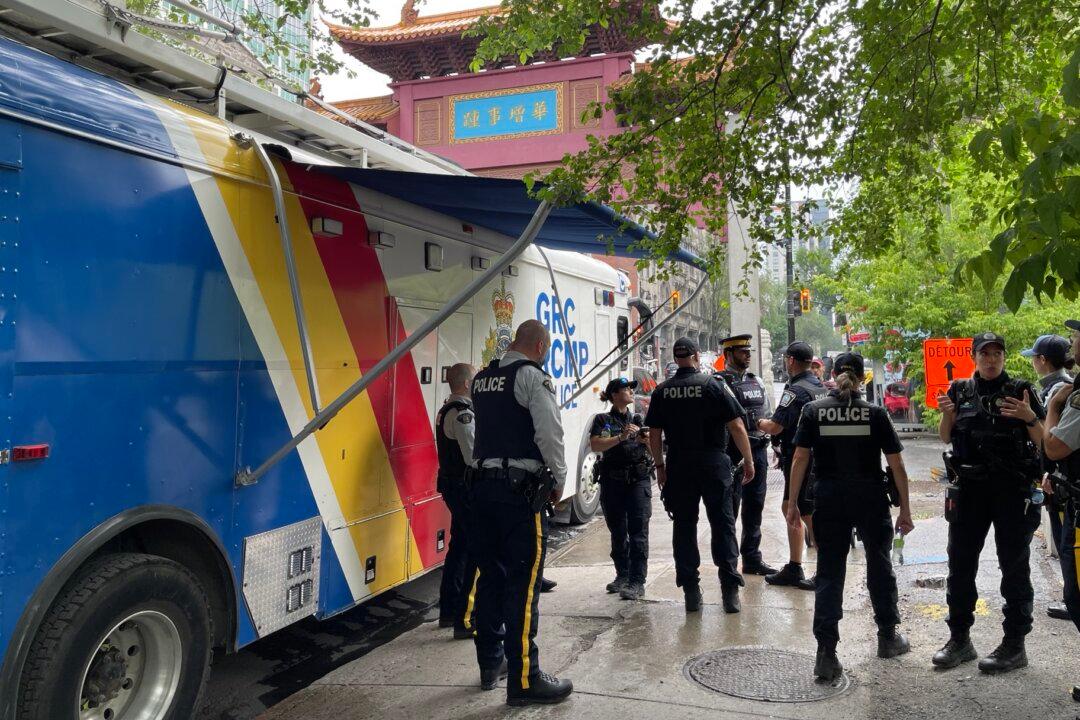MONTREAL—The federal police force in Quebec is making its efforts to counter Beijing interference public, saying complex investigations are being stymied by a diaspora fearful of backlash from the Chinese regime.
The RCMP C Division, which has jurisdiction in Quebec, mobilized its mobile command post and a dozen uniformed officers in Montreal’s Chinatown on July 10 for a campaign to raise awareness of Chinese interference, as the force investigates alleged covert Chinese police stations operating in the community.





